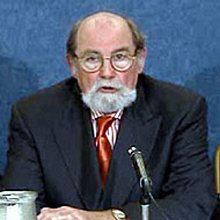Lifting the Restrictions on U.S. Travel to Cuba
- Submitted by: admin
- United States
- Personalities
- 07 / 13 / 2010

July 12, 2010
To the Editor:
In his July 9 letter, James C. Cason, a former chief of the United States Interests Section in Havana, insists that allowing Americans to travel freely to Cuba will not in any way encourage greater openness on the island.
I, too, was a chief of the United States Interests Section (1979-82), and have continued to work on and travel to Cuba for many years after that, and I would strongly disagree with Mr. Cason.
Letting Americans travel freely to Cuba simply stands to reason that the more Americans who are there, the greater impact they can have.
We are not talking only of tourists, after all, but of many with an interest in various aspects of Cuban life — sports, theater, history, the arts and many others. The cumulative impact of such contacts can be considerable.
Mr. Cason also mentions the 52 prisoners the Cuban government now says it will release and urges that the United States not lift travel controls until all political prisoners have been freed.
But I would note that that will not help in any way to bring about their freedom. The 52 are being freed because the Spanish
government and the Catholic Church entered into a dialogue with the Cuban government to bring that about. If they had followed the American pattern of refusing to engage, there would be no prisoner release at all.
The United States should indeed lift travel controls and should begin a meaningful dialogue with the Cuban government, which it has not yet done. Its approach has so far been a disappointment and has achieved little. Let us hope for something more imaginative — and effective.
I, too, was a chief of the United States Interests Section (1979-82), and have continued to work on and travel to Cuba for many years after that, and I would strongly disagree with Mr. Cason.
Letting Americans travel freely to Cuba simply stands to reason that the more Americans who are there, the greater impact they can have.
We are not talking only of tourists, after all, but of many with an interest in various aspects of Cuban life — sports, theater, history, the arts and many others. The cumulative impact of such contacts can be considerable.
Mr. Cason also mentions the 52 prisoners the Cuban government now says it will release and urges that the United States not lift travel controls until all political prisoners have been freed.
But I would note that that will not help in any way to bring about their freedom. The 52 are being freed because the Spanish
government and the Catholic Church entered into a dialogue with the Cuban government to bring that about. If they had followed the American pattern of refusing to engage, there would be no prisoner release at all.
The United States should indeed lift travel controls and should begin a meaningful dialogue with the Cuban government, which it has not yet done. Its approach has so far been a disappointment and has achieved little. Let us hope for something more imaginative — and effective.
Wayne S. Smith
Senior Fellow
Center for International Policy
Washington, July 9, 2010
the New York Times
WALTER LIPPMANN
Los Angeles, California
Editor-in-Chief, CubaNews
http://groups.yahoo.com/group/CubaNews/
Comments